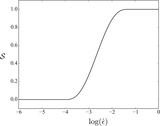A Simple, Entropy-based Dissipation Trigger for SPH
Abstract
Smoothed particle hydrodynamics (SPH) schemes need to be enhanced by dissipation mechanisms to handle shocks. Most SPH formulations rely on artificial viscosity and, while this works well in pure shocks, attention must be paid to avoid dissipation where it is not wanted. Commonly used approaches include limiters and time-dependent dissipation parameters. The former try to distinguish shocks from other types of flows that do not require dissipation while in the latter approach the dissipation parameters are steered by some source term ("trigger") and, if not triggered, they decay to a predescribed floor value. The commonly used source terms trigger on either compression, $-{\rm{\nabla }}\cdot {\boldsymbol{v}}$ , or its time derivative. Here we explore a novel way to trigger SPH-dissipation: since an ideal fluid conserves entropy exactly, its numerical nonconservation can be used to identify "troubled particles" that need dissipation because they either pass through a shock or become noisy for other reasons. Our new scheme is implemented into the Lagrangian hydrodynamics code MAGMA2 and is scrutinized in a number of shock and fluid instability tests. We find excellent results in shocks and only a very moderate (and desired) switch-on in instability tests. The new scheme is robust, trivial to implement into existing SPH codes, and does not add any computational overhead.
- Publication:
-
The Astrophysical Journal
- Pub Date:
- July 2020
- DOI:
- arXiv:
- arXiv:1912.01095
- Bibcode:
- 2020ApJ...898...60R
- Keywords:
-
- Hydrodynamical simulations;
- 767;
- Astrophysics - Instrumentation and Methods for Astrophysics;
- Physics - Computational Physics
- E-Print:
- 12 pages, 14 figures
